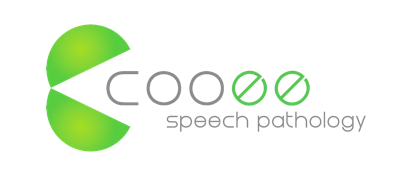How does my child’s speech impact upon their reading and writing development – the link between Speech Sound Disorders and literacy difficulties
What is speech?
‘Speech’ refers to how we pronounce the sounds within spoken words; including how we use our lips, tongue, teeth and cheeks to articulate those sounds.
What is a Speech Sound Disorder?
 A ‘Speech Sound Disorder’ (SSD) occurs when one has difficulties pronouncing their speech sounds and words, impacting upon how others understand their spoken messages. SSD’s can present in many different ways and vary in severity and nature – from delayed typical sound substitution patterns, articulation distortions such as a lisp, or significant dropping of sounds and/or syllables from a number of words. In the case of SSD, therapy from a Speech Pathologist is typically required to correct the speech errors.
A ‘Speech Sound Disorder’ (SSD) occurs when one has difficulties pronouncing their speech sounds and words, impacting upon how others understand their spoken messages. SSD’s can present in many different ways and vary in severity and nature – from delayed typical sound substitution patterns, articulation distortions such as a lisp, or significant dropping of sounds and/or syllables from a number of words. In the case of SSD, therapy from a Speech Pathologist is typically required to correct the speech errors.
What is literacy?
‘Literacy’ refers to the ability to read, write and spell. Developing literacy skills allows one to read stories and information and write a variety of messages, both on paper and on a device (i.e. computer, phone, tablet).
What do literacy difficulties look like?
 When a child has literacy difficulties, they experience challenges in their ability to:
When a child has literacy difficulties, they experience challenges in their ability to:
- Read words,
- Understand what they are reading,
- Spell words,
- Write sentences that match the level of their spoken sentences.
These ‘difficulties’ can present as:
- Poor accuracy reading and/or spelling,
- High effort and focus required to read and/or spell appropriately,
- Slow reading and/or writing,
- Low confidence and motivation completing reading, writing and/or spelling tasks.
How does a Speech Sound Disorder impact literacy development?
Children who are diagnosed with a Speech Sound Disorder can present with difficulties in their ‘phonological processing’ skills. Phonological processing skills refers to the ability to use the sounds (i.e. phonemes) of one’s language to be able to process spoken and written language (i.e. listen and read). Phonological processing includes:
 Phonological Awareness – the ability to hear and manipulate individual sounds within words, important for spelling,
Phonological Awareness – the ability to hear and manipulate individual sounds within words, important for spelling, - Phonological Memory – the ability to hear and remember sequences of sounds, important for sounding out and spelling words as well as learning new vocabulary,
- Rapid Naming Skills/Phonological Retrieval – the ability to rapidly recall the sounds and names of letters and numbers.
Children with a Speech Sound Disorder may experience weaknesses within their Phonological Awareness, their Phonological Memory or both. Phonological processing is key to developing appropriate literacy skills, and being able to read, write and spell with ease and accuracy.
Not all children with a Speech Sound Disorder will present with difficulties developing their literacy skills. Therefore, it is important to consult with a Speech Pathologist if you have any concerns regarding your child’s literacy development.
My child has a Speech Sound Disorder – how can I support their literacy skills?
If your child has a Speech Sound Disorder, there are a variety of different things you can do to support the development of their literacy skills:
 Correct their speech-sound errors – consult with a Speech Pathologist around accessing therapy to resolve the sound errors. The earlier these are resolved, the less chance these speech errors will be persistent.
Correct their speech-sound errors – consult with a Speech Pathologist around accessing therapy to resolve the sound errors. The earlier these are resolved, the less chance these speech errors will be persistent.
- Phonological Processing testing prior to school entry – have your child’s pre-literacy skills assessed prior to them starting Prep to determine what (if any) areas of weakness your child may be presenting with, and how these can be addressed (with therapy and/or home strategies). A Speech Pathologist can support the assessment and therapy process.
- Practice Phonological Awareness tasks – complete a variety of different phonological tasks that develop your child’s ability to: identify the syllables/parts of words, hear and name the first and last sounds of short words, blend together sounds to make a word, and identify rhyming words. You can liaise with a Speech Pathologist or your child’s Kindy teacher for activity ideas.
- Develop Print Knowledge with book reading – frequently read a variety of different books with your child, pointing out the words, letters and sounds in the story. Teach your child new vocabulary by reading the text and explaining what the new words mean in a way that makes sense to the child. Get them to have a turn holding the book, turning the pages and pointing to words you’re sounding out to help them learn to navigate books.
If you would like more information or have any concerns about your child’s speech or literacy skills, please get in touch with us at our north Brisbane Speech Pathology clinic either via phone (07 3265 4495) or email ([email protected]).

Thida Hantun
Speech Pathologist & Clinical Lead
